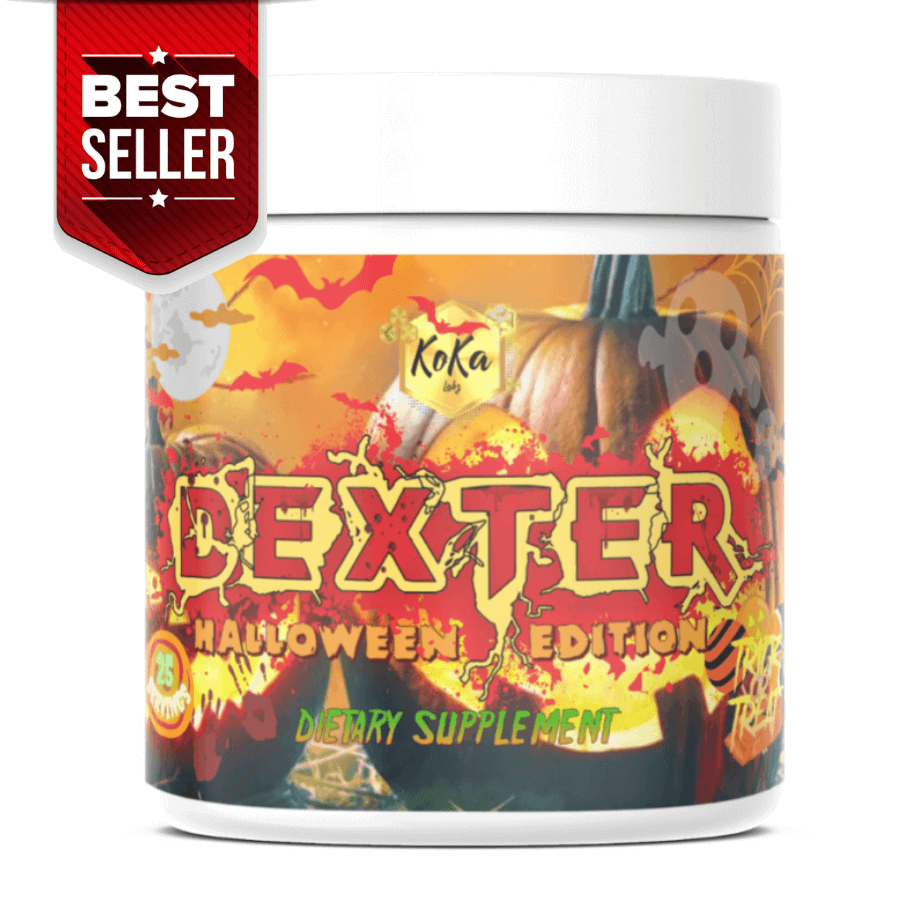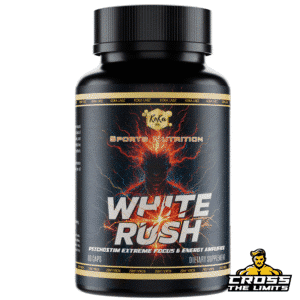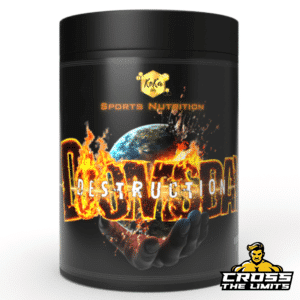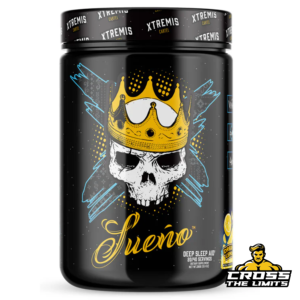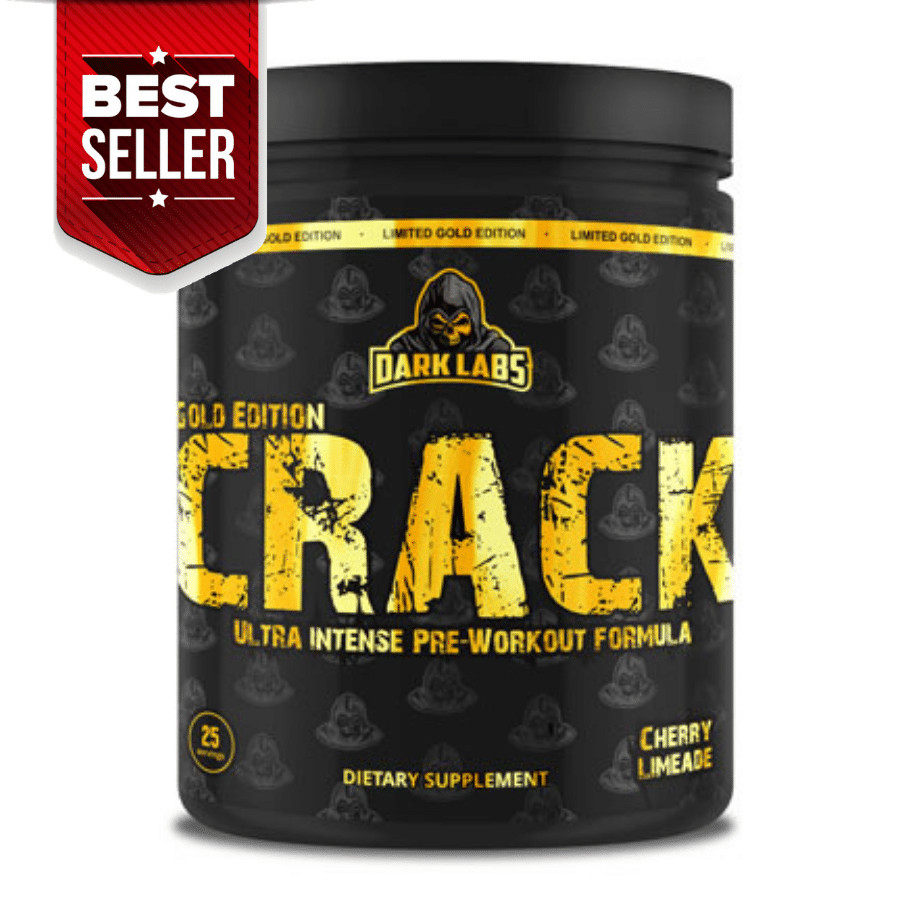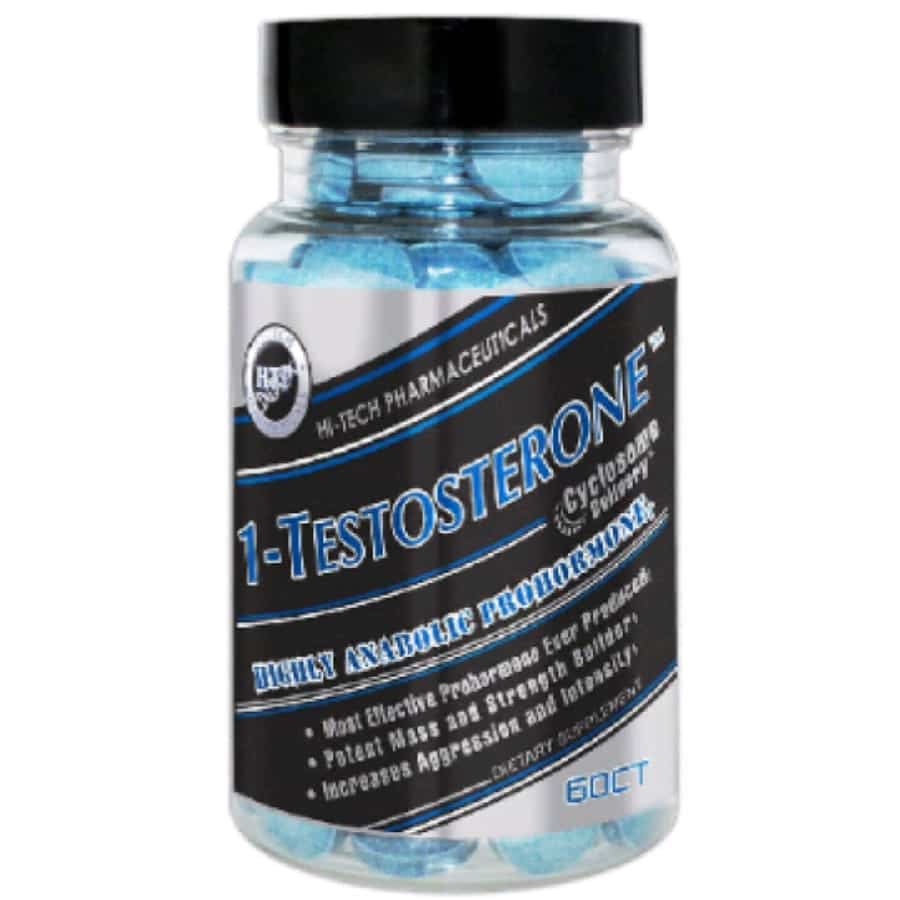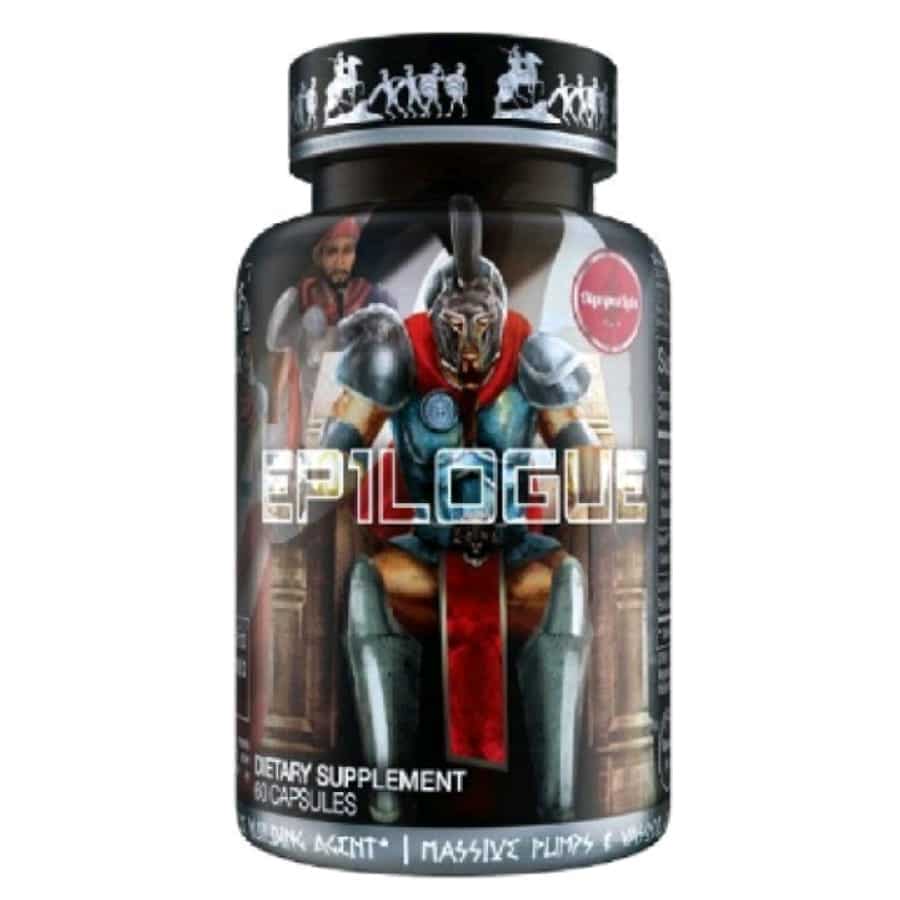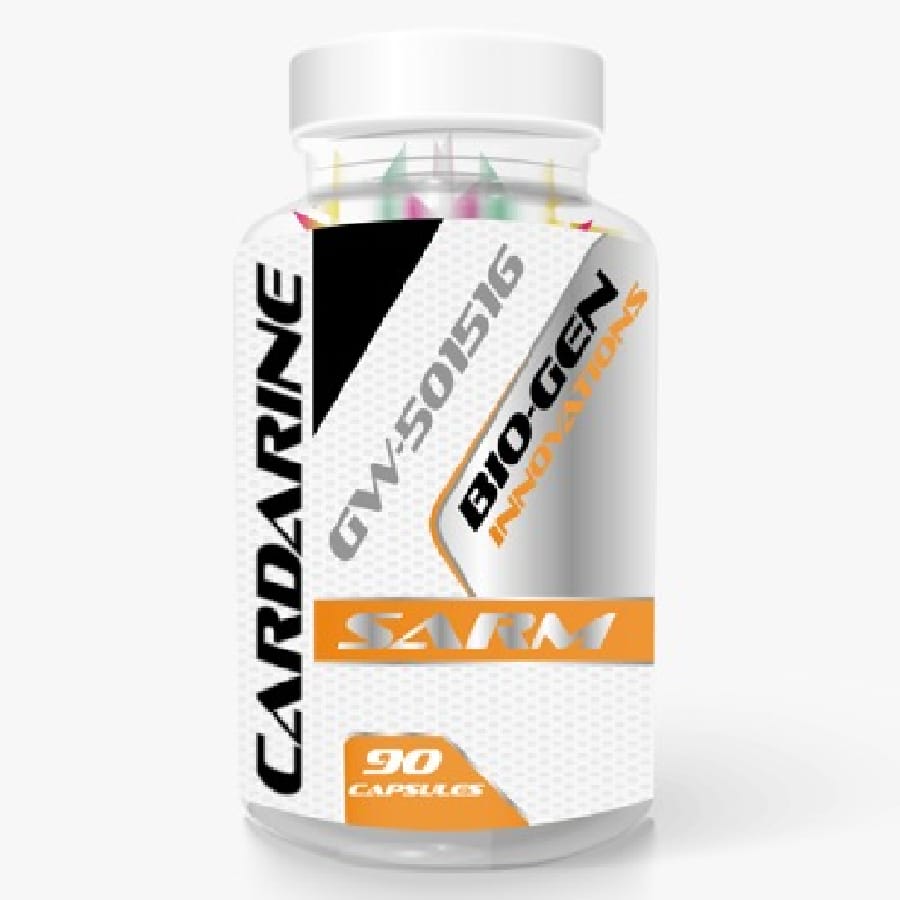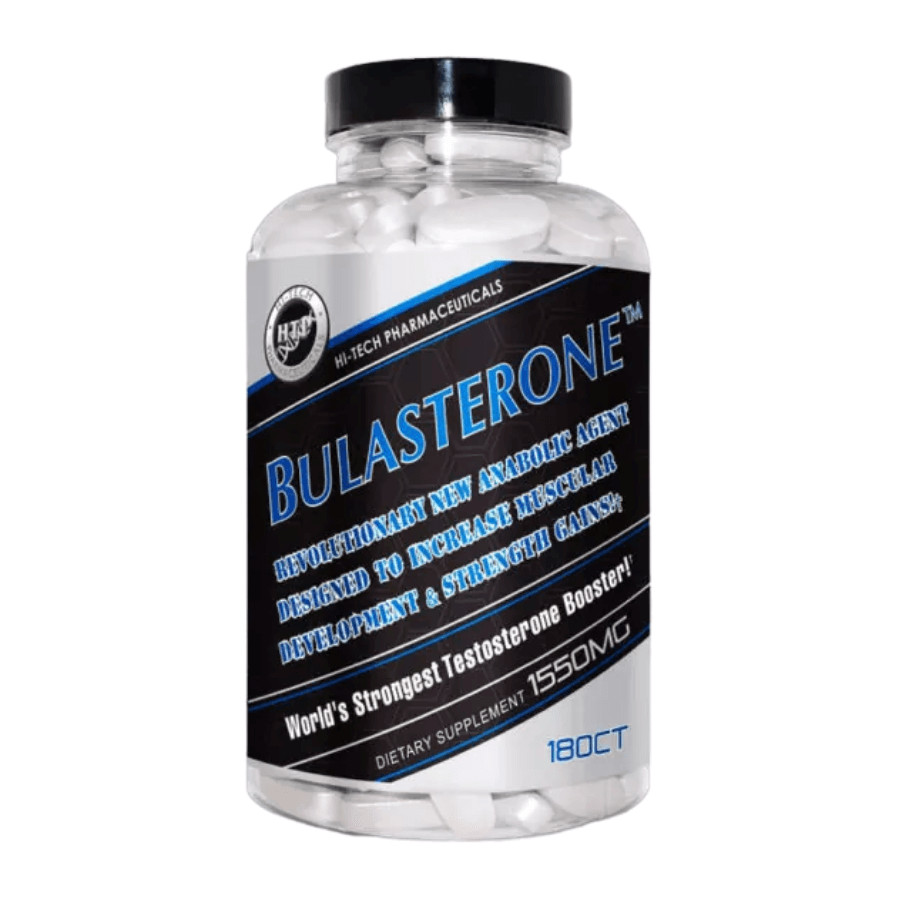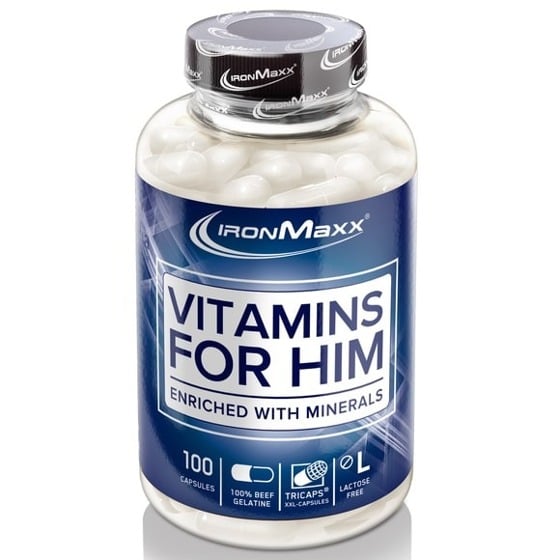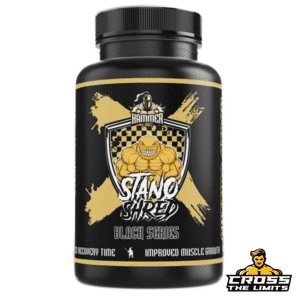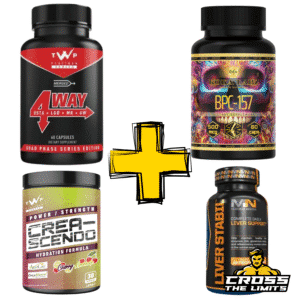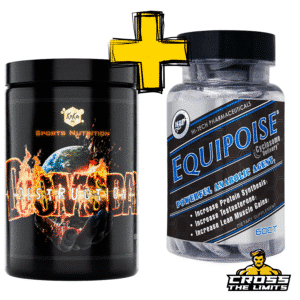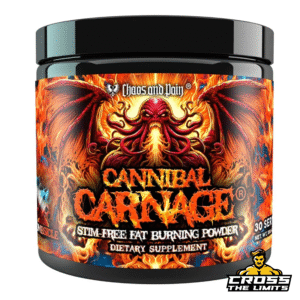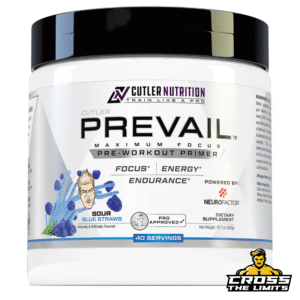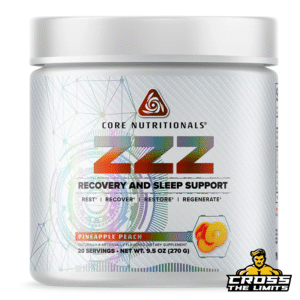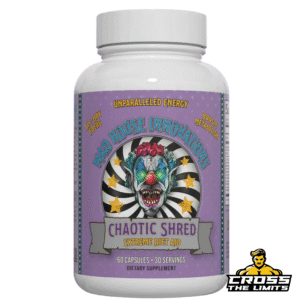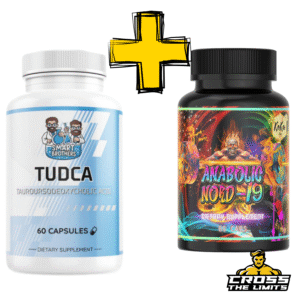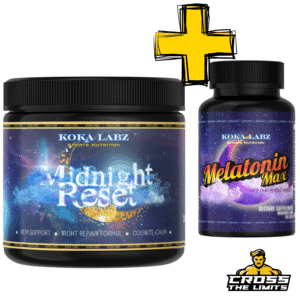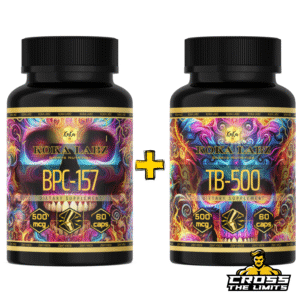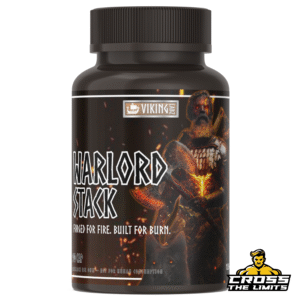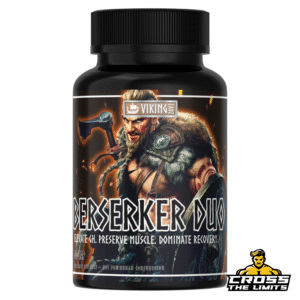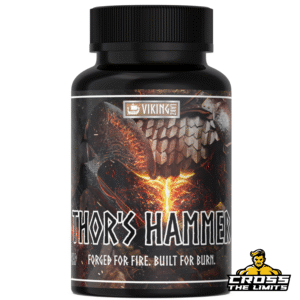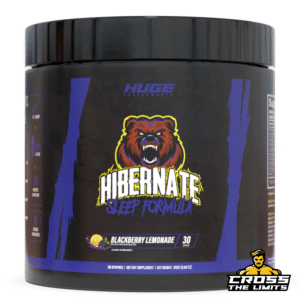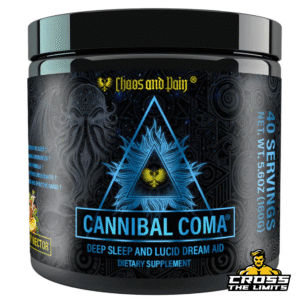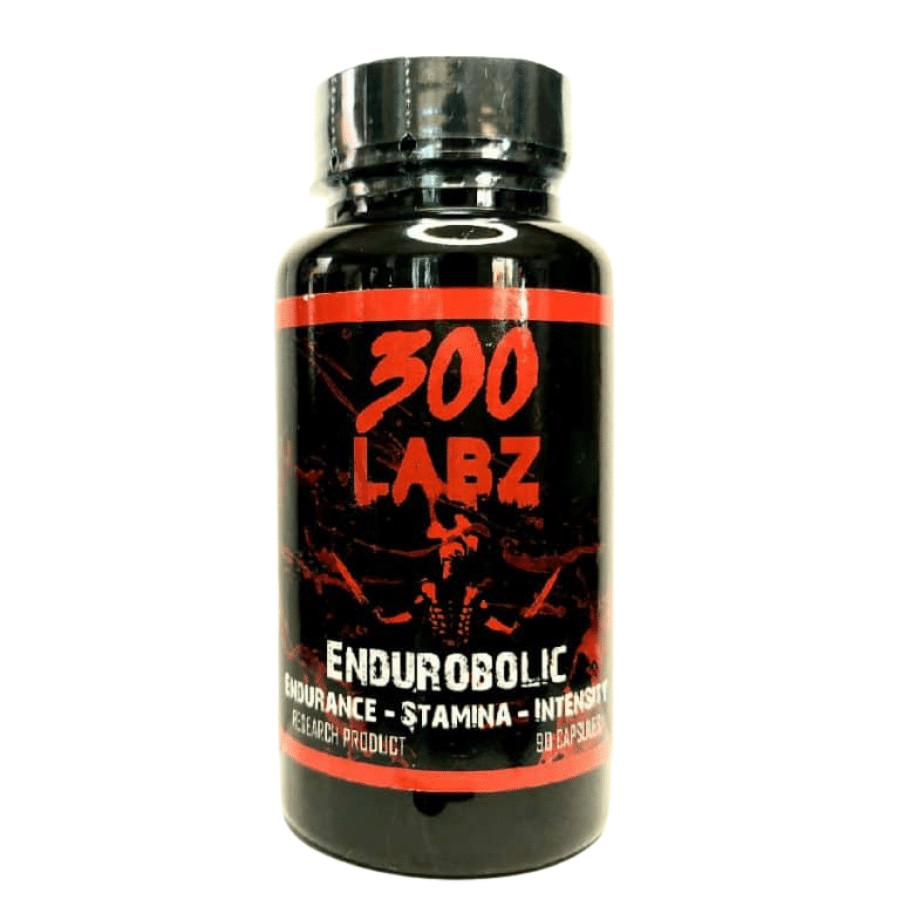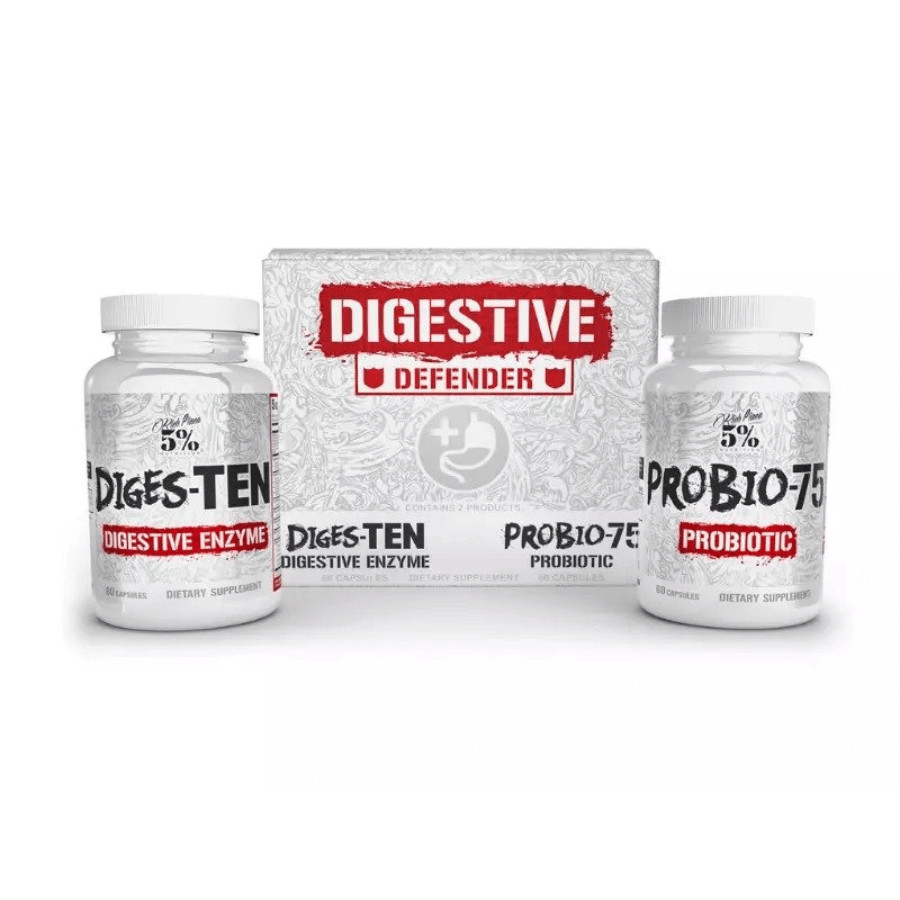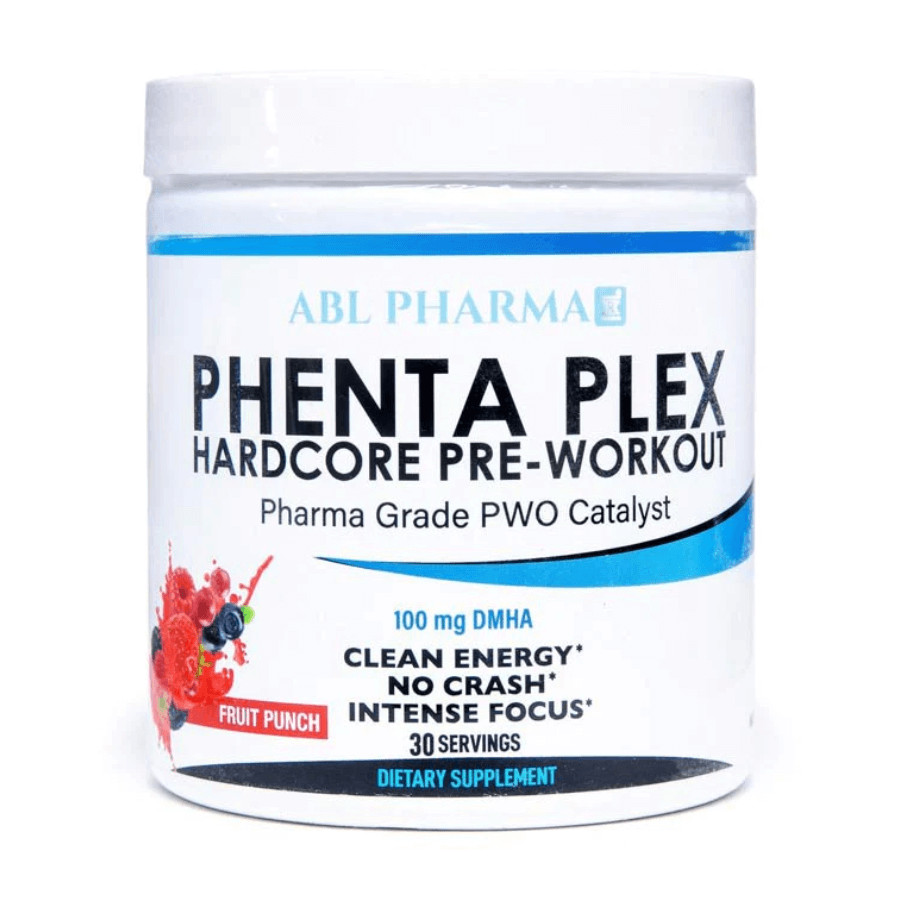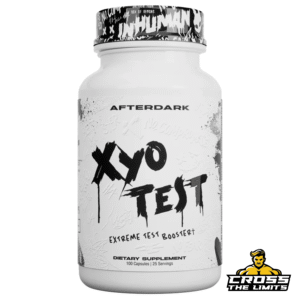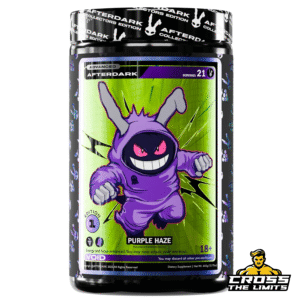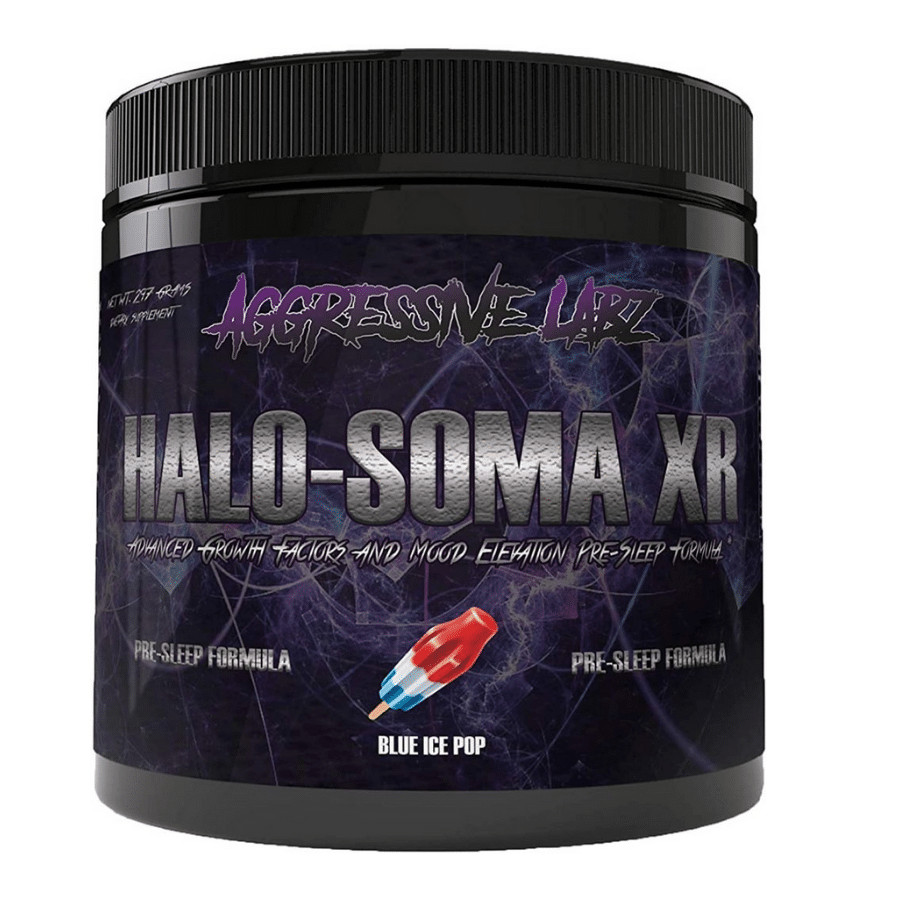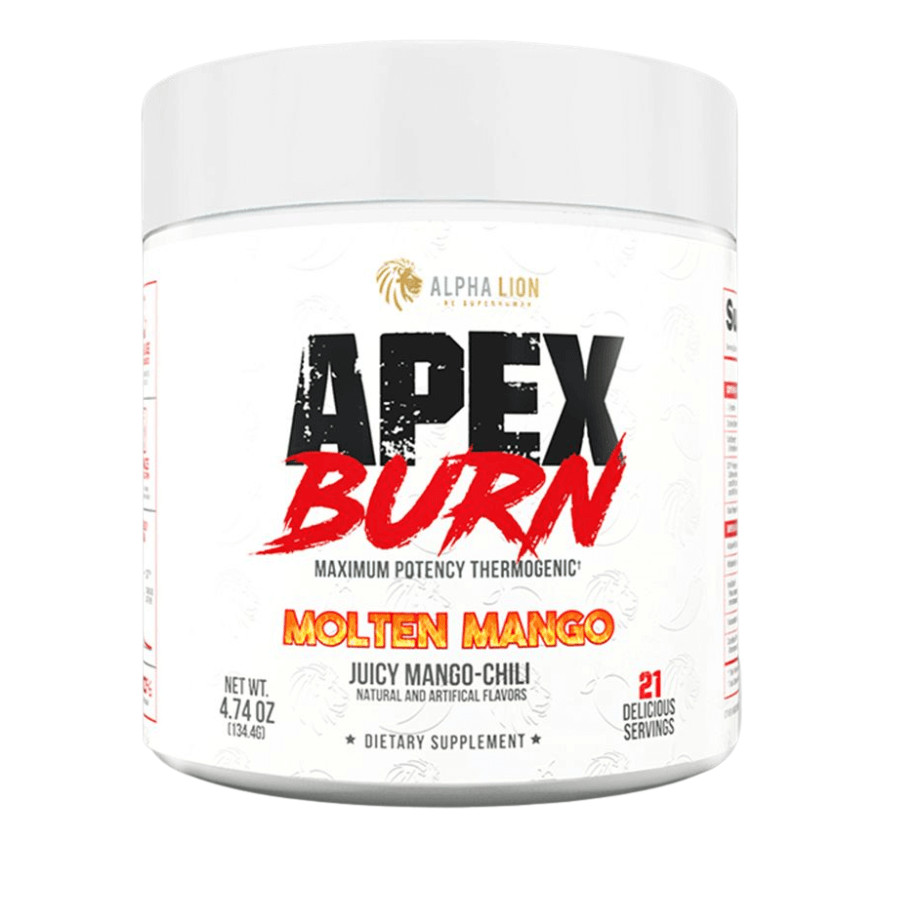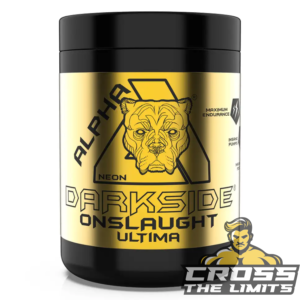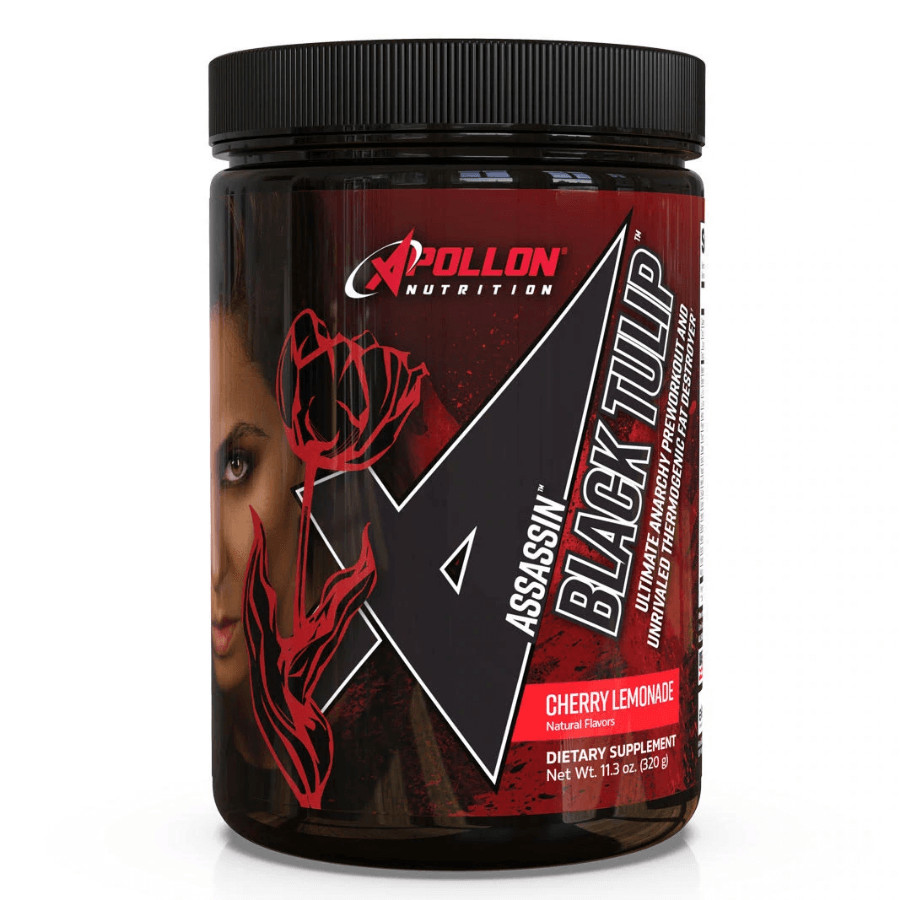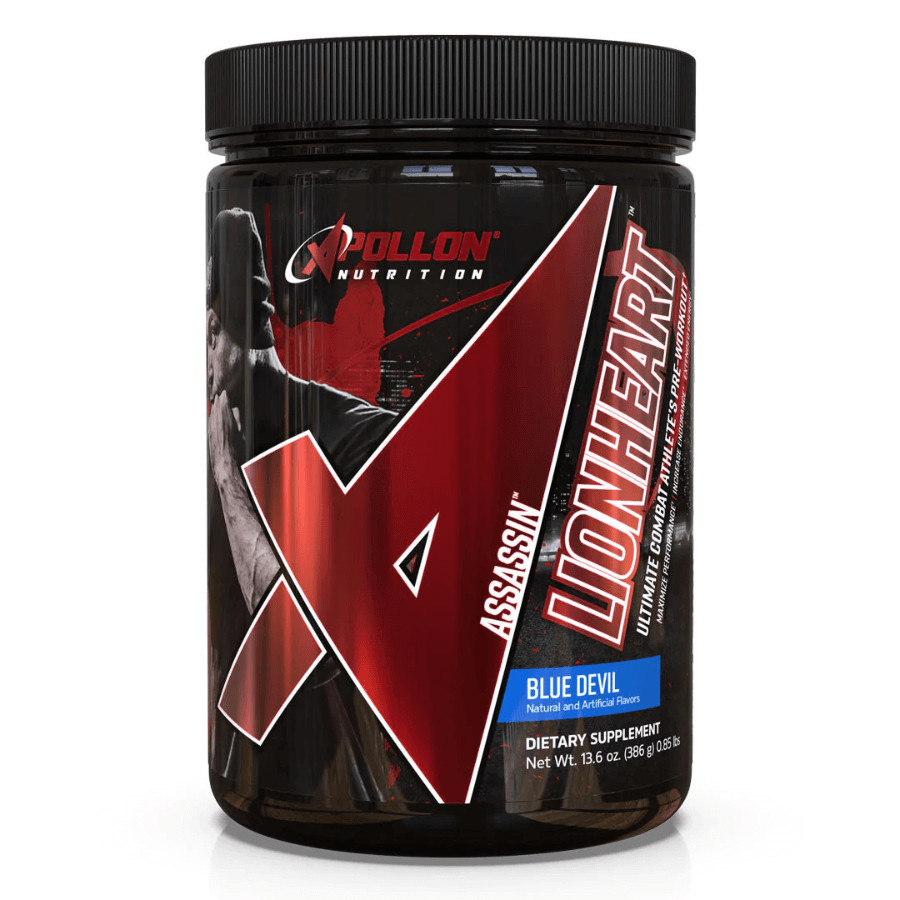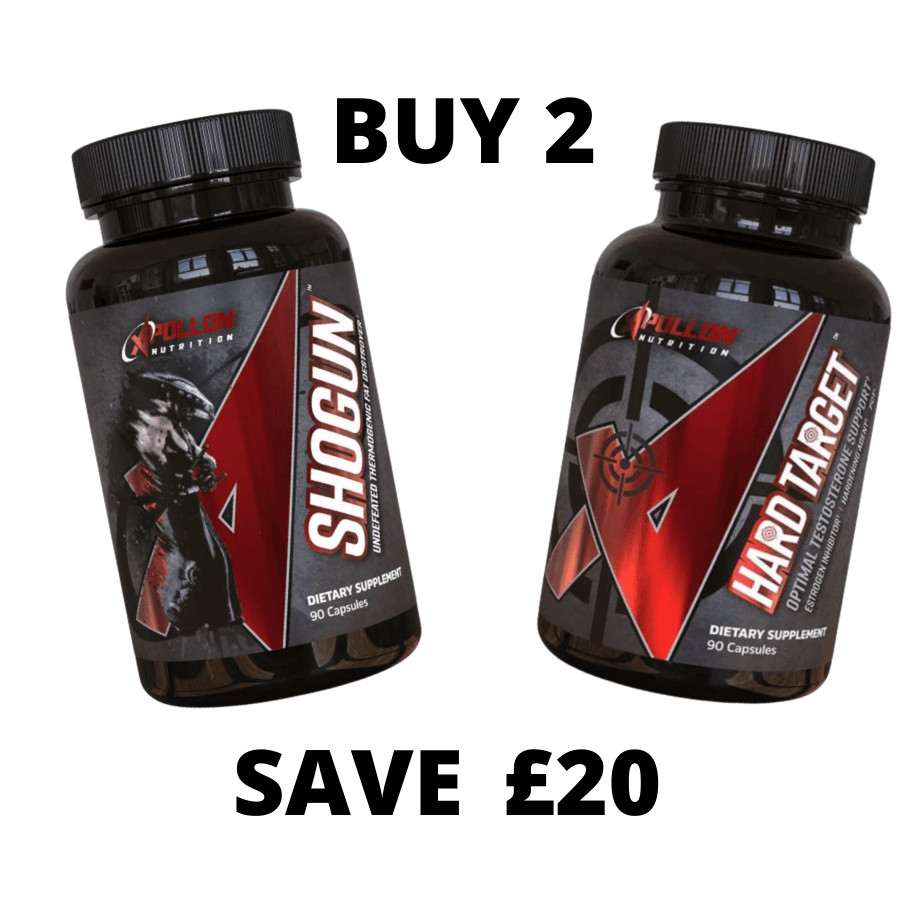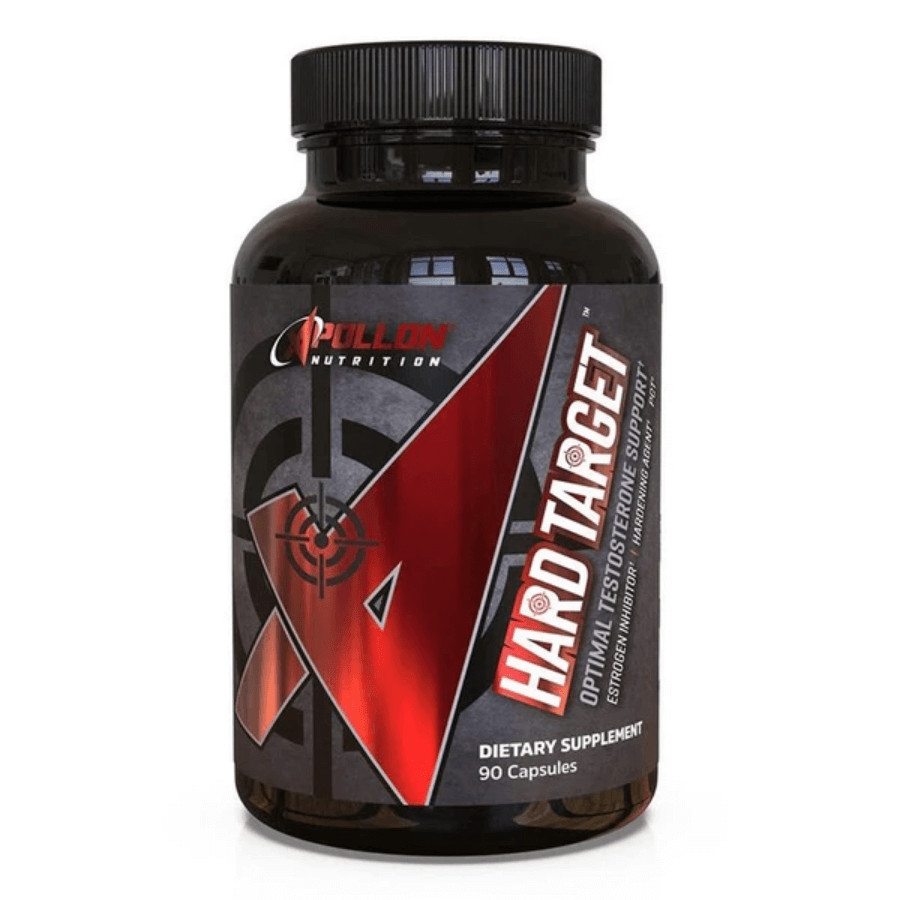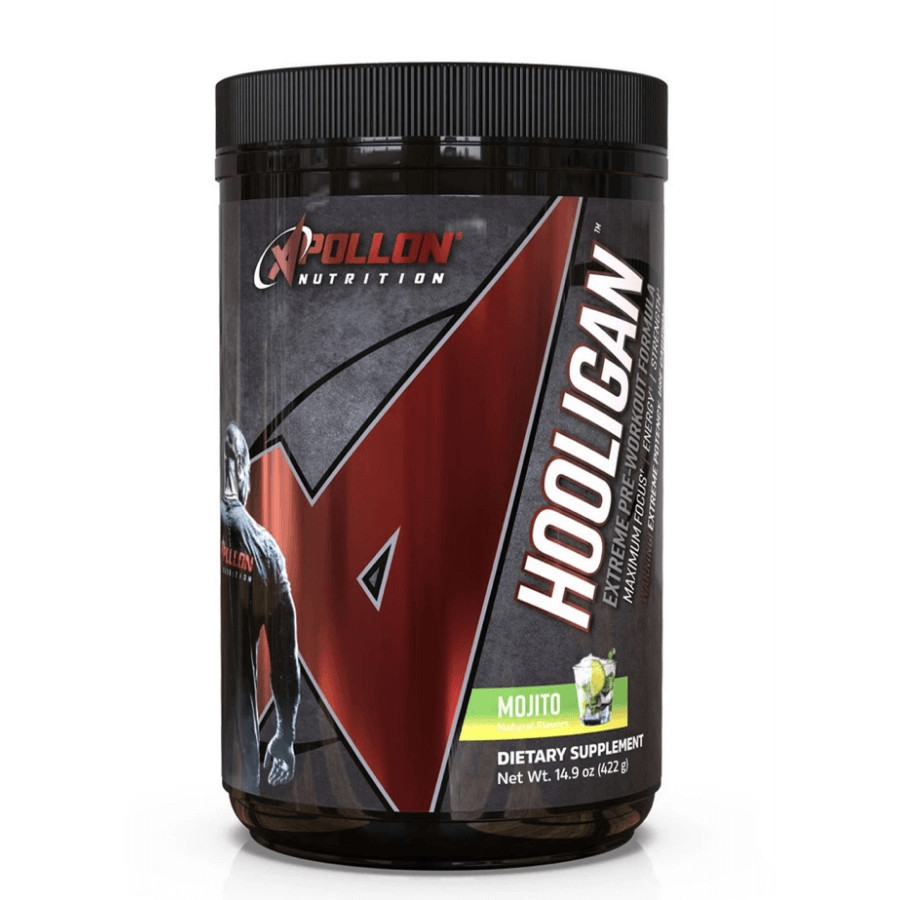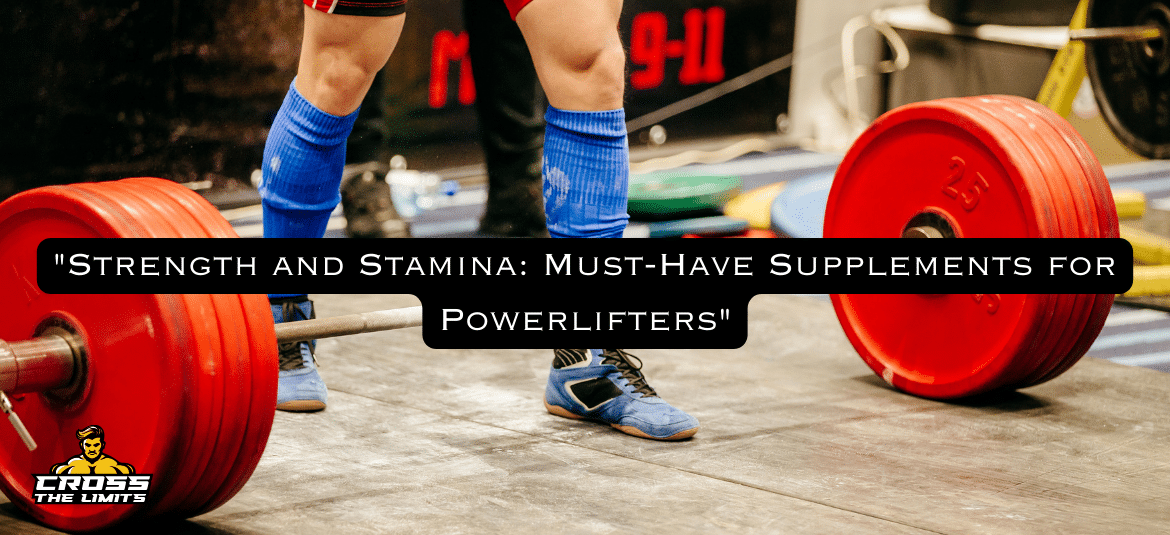
“Strength and Stamina: Must-Have Supplements for Powerlifters”
“Strength and Stamina: Must-Have Supplements for Powerlifters”
In the realm of strength sports, powerlifting stands as a formidable colossus, a discipline where athletes are revered for their Herculean strength and enduring stamina. This tripartite contest of human might – squat, bench press, and deadlift – is not merely a test of physical prowess but also an exploration of the mental tenacity and nuanced strategy required to hoist weights often multiple times the lifter’s body weight. For powerlifters, pursuing increased force and endurance is not just a passing fancy but a relentless quest. And in this relentless pursuit, supplements have emerged as vital allies.
But what is it about supplements that make them such integral components of a powerlifter’s regimen? Is it the promise of a marginal gain that can be the difference between a failed lift and a new personal record? Or is it the allure of enhanced recovery, allowing for more frequent and intensive training sessions? The answer lies in the synergy of these benefits and more. Within the disciplined cacophony of metal plates and bars, where every lift is a ballet of brute strength, supplements can fine-tune the body’s performance and resilience.
The nutritional needs of powerlifters are distinct and amplified compared to those of the average fitness enthusiast or even other athletes. Powerlifting training sessions are exhaustive and deplete the body of essential nutrients faster, necessitating not just replenishment but strategic supplementation. From protein that serves as the foundational building block of muscle repair to creatine that offers an extra reservoir of energy for those critical lifts, the right supplements can have a profound impact on a powerlifter’s performance.
But how do we sift through the marketing hype and the sea of products on the shelves? There are myriad options available, each claiming to be the panacea for the strength-seeking athlete. It is a domain where science and anecdotes often intermingle, sometimes obscuring the truth about what genuinely works. It is here, at this confluence of need, hope, and evidence, that we aim to provide clarity. We will dissect the roles of specific supplements, uncovering how they can support and potentially amplify the strength and stamina that powerlifters so diligently work to build.
-
Product no longer in sale
Check our bestsellersSuper Human 369g 2-amino
£41.68Rated 5.00 out of 5Rated 5.00 out of 5Product no longer in sale
Check our bestsellersTurnt Up 308g
£32.06Rated 5.00 out of 5Rated 5.00 out of 5Rated 5.00 out of 5Rated 5.00 out of 5Rated 4.33 out of 5Product no longer in sale
Check our bestsellersProduct no longer in sale
Check our bestsellersProduct no longer in sale
Check our bestsellersNo-Name Labz Rated DMAA
£34.61Product no longer in sale
Check our bestsellersMAGNUM 8000 1600g (date09/19)
£12.50 £28.09Product no longer in sale
Check our bestsellersEPITHALON 10mg-50mg
£24.90Product no longer in sale
Check our bestsellersAs we delve deeper into the world of supplementation, we find that timing, dosage, and the quality of ingredients become paramount. The ergogenic aids we will explore are not just about swallowing a pill or mixing a powder – they’re about enhancing the physiological processes that contribute to strength and power. They are about understanding the metabolic pathways that fuel muscle contraction, the recovery processes that facilitate muscle growth, and the delicate balance of nutrients safeguarding health while promoting performance.
And amidst this discourse on supplements, we must maintain sight of the holistic nature of athletic performance. Supplements must be enmeshed within a broader context of balanced nutrition, disciplined training, and adequate rest. They are not standalone solutions but components of a more giant, more complex puzzle.
With the dawn of new research and the perpetual evolution of sports science, the list of must-have supplements for powerlifters continues to grow and evolve. This article does not just seek to enumerate these supplements. Still, it aims to demystify them, peel back the layers of scientific jargon and reveal the core benefits they can provide. We will examine both the celebrated champions of the supplement world and the promising newcomers, evaluating their roles within the rigorous lifestyle of a powerlifting athlete.
As we embark on this explorative journey through the landscape of strength-enhancing supplements, let us remember that supplementation is as much about the mind as it is about the body. It is a process that begins with informed choices, is sustained by consistent effort, and is ultimately validated by the triumphant clang of weight plates resonating through a gym. For the powerlifter, each supplement ingested is a calculated step towards achieving the extraordinary – transcending personal limits and redefining what is physically possible.
Join us as we navigate the essential supplements that are the bedrock of strength and stamina for the modern powerlifter. Through the lens of science and the testimonials of iron warriors themselves, we will unravel the potent combination of supplements that are not merely additives but vital cogs in the machinery of powerlifting greatness.
Understanding the Powerlifter’s Nutritional Needs
Introduction to Powerlifting Nutrition:
Powerlifting is an extreme physical demand, requiring athletes to train and compete in lifting maximal weights across three main lifts: the squat, the bench press, and the deadlift. These compound movements engage multiple muscle groups, necessitating a strong and resilient musculoskeletal system. Beyond muscle, powerlifting stresses the central nervous system, joints, tendons, and even psychological resilience. Given these exhaustive demands, the nutrition of a powerlifter is not a mere facet of their training but the bedrock upon which performance is built.
To withstand the rigours of training and competition, powerlifters must pay close attention to their intake of macronutrients – the primary fuel source for the body. The three macronutrients essential to a powerlifter’s diet are proteins, fats, and carbohydrates. Each plays a unique role in supporting the powerlifter’s journey towards greater strength and size.
Protein: The Muscle Builder:
Proteins are the building blocks of muscle tissue. They are made up of amino acids, which are essential for the repair and growth of muscle fibres that are constantly being broken down during heavy lifting sessions. When a powerlifter trains, microscopic tears occur within the muscle. It is during the recovery period that these fibres repair and adapt, becoming thicker and more robust – a process known as hypertrophy. Protein accelerates this repair process and facilitates muscle growth, making it an indispensable component of a powerlifter’s diet.
For powerlifters, the consensus among sports nutritionists is a higher protein intake than recommended for the average sedentary individual. Various studies suggest that for optimal muscle repair and growth, powerlifters may require between 1.6 to 2.2 grams of protein per kilogram of body weight per day, with some recommendations going even higher for those in intense training cycles. However, this must be carefully balanced with other dietary requirements and tailored to individual needs, training intensity, and overall health goals.
Carbohydrates: The Energy Source:
While proteins repair and build the muscle, carbohydrates are the fuel that powers the engine. Carbohydrates are broken down into glucose, which is then used to replenish muscle glycogen stores. Glycogen is the primary source of energy for high-intensity activities such as powerlifting. When a powerlifter is performing a maximal lift, the body relies heavily on these glycogen stores to produce the burst of energy required.
The importance of carbohydrates extends beyond just providing energy for workouts. Adequate carbohydrate intake post-training is vital for glycogen replenishment. If glycogen stores are not restored, recovery can be impaired, and subsequent performance can suffer.
Moreover, when carbohydrates are insufficient, the body may start breaking down proteins for energy, which is counterproductive for muscle growth.
Timing of carbohydrate intake is also a crucial consideration for powerlifters. Consuming carbohydrates pre-workout can ensure that energy levels are optimized for the session ahead. Post-workout, a combination of carbohydrates and proteins can enhance glycogen synthesis and accelerate protein synthesis, which is crucial for muscle repair. The types of carbohydrates also matter; complex carbohydrates with a low glycemic index provide a more sustained energy release, while simple carbohydrates can offer a rapid energy source when needed immediately around workout times.
In conclusion, the intersection of powerlifting and nutrition is a dynamic field that continually evolves with advancing research and empirical data from the strength community. For powerlifters, understanding and harnessing the power of macronutrients is critical for success. The strategic intake of proteins and carbohydrates not only supports their performance and recovery but ultimately dictates the trajectory of their powerlifting journey.
Fats: The Underestimated Fuel
Often overshadowed by the macronutrients protein and carbohydrates, dietary fats play a pivotal yet less-heralded role in the diet of a powerlifter. Fats are essential for the production of hormones, including testosterone, which is a critical anabolic hormone that aids in muscle growth and recovery. The lipid components of fats are fundamental in creating the cellular structure and supporting cell function, including the cells that produce hormones.
Adequate fat intake is associated with maintaining optimal levels of testosterone, which not only impacts muscle growth but also influences energy levels and overall training performance. Powerlifters need to include healthy fats in their diet, such as those found in avocados, nuts, seeds, and fatty fish, which are rich in omega-3 fatty acids. These fats reduce inflammation, aiding recovery after gruelling training sessions.
Micronutrients: The Unsung Heroes
While macronutrients get the spotlight, micronutrients are the behind-the-scenes workers crucial for myriad physiological functions. Vitamins and minerals are involved in muscle contraction, blood clotting, energy production, and maintaining strong bones – all vital for powerlifters.
For example, calcium and vitamin D are essential for bone health, a critical consideration for powerlifters who place significant stress on their skeletal system. Iron is another critical micronutrient that supports oxygen transport in the blood, which is essential for athletic performance and stamina. Magnesium plays a role in muscle function and helps prevent cramps and spasms, which can be a powerlifter’s nemesis.
Micronutrient deficiencies can hinder performance, delay recovery, and increase the risk of injury, which is why powerlifters should ensure their diet is rich in a variety of vitamins and minerals or consider supplementation under professional guidance.
Hydration: The Cornerstone of Performance
Water is the most critical but often neglected nutrient in a powerlifter’s diet. Proper hydration is vital for numerous bodily functions, including joint lubrication and the transport of nutrients to cells. Adequate water intake helps maintain blood volume, which is necessary for cardiovascular health and optimal muscle function.
Dehydration can lead to a significant reduction in performance, as it affects power output and increases the risk of heat stress and exhaustion. Powerlifters must monitor fluid intake throughout the day, especially during training sessions, to ensure they remain adequately hydrated.
Supplements as a Support System
Supplements can play a supportive role in the powerlifter’s nutritional arsenal. They are particularly beneficial when dietary intake does not meet the nutrient demands of heavy training or when trying to enhance certain aspects of performance and recovery. Creatine, for example, is widely researched and has been shown to improve strength and power output. Beta-alanine can aid in buffering lactic acid, improving endurance during high-intensity lifts.
However, it’s crucial to contemplate supplementation, ideally under the guidance of a professional, to avoid unnecessary or excessive intake that can lead to health issues or failed doping tests.
Meeting the Caloric Demands
Powerlifters’ caloric needs are significantly higher than those of the general population due to the intense nature of their training. Balancing the quantity and quality of calories consumed is crucial. Eating sufficient calories from nutrient-dense foods supports training, aids recovery, and contributes to overall health. An imbalance, whether consuming too many or too few calories, can lead to performance detriments and health issues.
Debunking Common Nutritional Myths in Powerlifting
The powerlifting community is not immune to nutritional myths and misconceptions. One common myth is that powerlifters should consume protein in excess at the expense of other nutrients. While protein is essential, overemphasizing protein to the detriment of other macronutrients can disrupt overall nutritional balance and health.
Consulting the Professionals
Given the complexity of nutrition and its profound impact on performance, consulting a registered dietitian or a sports nutritionist who understands the unique demands of powerlifting is invaluable. These professionals can provide personalized nutrition plans based on individual needs, preferences, and goals, far superior to a one-size-fits-all approach.
In conclusion, the nutrition of a powerlifter should be a carefully constructed blend of macronutrients, micronutrients, and adequate hydration. The addition of supplements should be a strategic choice rather than a default. Through debunking myths and seeking professional guidance, powerlifters can create a diet that fuels their training, supports their recovery, and drives their performance to new heights.
Introduction to Muscle-Building Supplements
The journey of muscle building is a meticulous blend of structured training, disciplined nutrition, and the strategic use of supplements. Supplements, often considered the third pillar in the triad of muscle-building strategies, come into play due to their ability to fill nutritional gaps, optimize recovery, and enhance performance. They are not intended to replace whole foods but to augment a diet that is already solid and nutrient-dense. With the myriad of supplement options available, understanding their roles and benefits can help make informed decisions that complement the pursuit of muscle growth.
-
Koka Labs Doomsday Destruction + Hi-Tech Pharmaceuticals Equipoise-Ultimate Performance & Muscle Stack
£84.99 £91.48SMART BROTHERS TUDCA + KOKA LABZ ANABOLIC NORD-19 – ADVANCED PROHORMONE & LIVER SUPPORT STACK (2×60 CAPSULES)
£104.99 £119.74KOKA LABZ MIDNIGHT RESET + MELATONIN MAX – ADVANCED NIGHT RECOVERY & SLEEP SUPPORT STACK
£48.99 £55.75KOKA LABZ BPC-157 + TB-500 STACK – DUAL PEPTIDE RECOVERY & HEALING SUPPORT (2×60 CAPS)
£69.99 £80.74Protein Supplements: More Than Just Convenience
Among the pantheon of muscle-building supplements, protein powders reign supreme. Two of the most popular forms are whey and casein, derived from milk.
Whey protein is renowned for its fast-digesting properties, making it an ideal choice for post-workout consumption. After an intense weightlifting session, the muscles are primed for repair and growth, and whey provides a rapid supply of amino acids to the muscle, kickstarting the recovery process. Its high content of essential amino acids, especially leucine, is crucial for muscle protein synthesis.
On the other end of the digestion spectrum lies casein protein, known for its slow-release properties. When consumed, casein forms a gel-like substance in the stomach that slowly releases amino acids into the bloodstream. This makes it particularly beneficial before periods of fasting, like overnight sleep, to help sustain muscle protein synthesis and inhibit muscle breakdown while the body is at rest.
Complete vs. Incomplete Proteins
Proteins are composed of amino acids, the building blocks of muscle tissue. A complete protein contains all nine essential amino acids in sufficient amounts, which the body cannot produce independently. Many supplements are designed to provide complete proteins, or they can be combined with other foods to ensure a complete amino acid profile.
However, not all protein supplements are created equal. Some plant-based proteins may be incomplete, lacking one or more essential amino acids. Understanding this can guide powerlifters and athletes in selecting supplements that match their dietary preferences and nutritional requirements.
Bioavailability and Absorption
The effectiveness of a protein supplement is not just about the amino acid profile but also its bioavailability – the degree to which it is absorbed and utilized by the body. Bioavailability can be affected by factors such as digestion rate, the presence of other nutrients, and individual digestive health. For instance, whey protein is often celebrated for its high bioavailability and quick absorption rate, making it particularly effective for post-workout recovery.
BCAAs: The Essential Trio
Branched-chain amino Acids (BCAAs) are three essential amino acids – leucine, isoleucine, and valine – critical for muscle building. They are named for their branched chemical structure. They are unique in their ability to be metabolized directly by muscle tissue.
Leucine, in particular, is a powerhouse in muscle synthesis. It is a critical signal in the mTOR pathway, the cellular process that drives muscle protein synthesis. A sufficient leucine threshold is essential to trigger this pathway, making it a crucial component of muscle-building supplements.
The importance of BCAAs extends beyond their role in synthesis; they also help to reduce muscle soreness, decrease exercise-induced fatigue, and may even aid in fat loss when part of a comprehensive nutritional and training program.
In summary, muscle-building supplements, especially protein powders and BCAAs, can be significant allies in the quest for muscle mass. While they can never replace the foundational role of a well-rounded diet, they offer convenience, enhance recovery, and ensure that the muscle-building machinery is always fueled and ready for the next round of training.
BCAAs and Recovery
Branched-chain amino Acids (BCAAs) have garnered attention not just for their role in muscle protein synthesis but also for their impact on recovery, particularly in reducing Delayed Onset Muscle Soreness (DOMS). DOMS is the pain and stiffness felt in muscles several hours to days after unaccustomed or strenuous exercise. The precise mechanism of BCAAs in alleviating DOMS has yet to be fully understood. However, they are believed to reduce muscle damage during exercise, decrease the concentration of creatine kinase, an indicator of muscle damage, and reduce levels of serum enzymes involved in muscle inflammation.
Moreover, BCAAs, particularly leucine, are recognized for their capacity to reduce fatigue and enhance endurance during workouts. They are thought to do this by affecting the production of serotonin. This neurotransmitter can contribute to the perception of fatigue during exercise. By limiting the entry of tryptophan into the brain, which is converted to serotonin, BCAAs can potentially diminish the feeling of tiredness, allowing for prolonged and more intense training sessions.
Protein Timing and Dosage
The concept of the “anabolic window” suggests a limited period post-exercise during which the body is exceptionally receptive to nutrients, especially protein. While this window is traditionally pegged 30 to 45 minutes after a workout, recent research suggests that the anabolic response to protein intake is more extended than previously thought. Nevertheless, consuming protein after training is still a practical guideline for optimizing recovery.
The recommended dosage for protein varies depending on body weight, the intensity of the workout, and individual goals. Still, general guidelines suggest 1.6 to 2.2 grams of protein per kilogram of body weight per day for those involved in heavy resistance training. Dividing this intake over the day into multiple doses can lead to optimal muscle repair and growth.
Diversity in Protein Sources
The landscape of protein supplements is evolving, with plant-based protein sources gaining popularity. These include pea protein, rice protein, hemp protein, and soy protein, which are particularly appealing to those following a vegetarian or vegan lifestyle or those with allergies to dairy-based proteins. The key to plant-based proteins is combining different types to ensure a complete amino acid profile.
Beyond Muscle: The Other Benefits of Protein Supplements
Protein supplements are renowned for their benefits beyond muscle building. They have been shown to support the immune system due to their role in producing antibodies and influencing the balance of gut bacteria. Additionally, protein is highly satiating, which can help regulate appetite and assist in weight management by reducing the total caloric intake and preserving lean body mass during weight loss efforts.
Choosing the Right Supplement
When selecting a protein supplement, quality is paramount. It’s essential to read labels carefully to understand the protein source and the amount per serving and to check for added ingredients such as sugars, artificial flavours, or fillers. Athletes should be vigilant about avoiding contaminants or substances banned by sports organizations, necessitating choosing third-party products tested and certified by reputable organizations.
In conclusion, BCAAs and protein supplements are beneficial in supporting muscle recovery, reducing DOMS, and enhancing overall workout performance. By incorporating these supplements with appropriate timing and dosages and choosing high-quality and suitable protein sources, athletes can not only optimize their muscle-building efforts but also enjoy additional health benefits, thereby supporting their holistic well-being and fitness goals.
Enhancing Strength with Creatine
Creatine monohydrate stands out in the supplement world like a seasoned powerlifter in a gym with a total of rookies. It’s familiar, it’s not flashy, but my, does it get the job done. Renowned for its ability to increase power output and muscle strength, creatine is the go-to guy for giving athletes that extra ‘oomph’ they crave. How does it do it? By replenishing ATP, the currency of energy in our cells, creatine ensures that when you’re pushing through those last few reps, you’ve got the resources to finish strong.
The science behind creatine is as solid as the dumbbells waiting for you on your next gym visit. Study after study confirms not just its effectiveness but also its safety for long-term use. From boosted gym performance to enhanced recovery, creatine has been shown to support athletes in their quest for greater strength. But it’s not magic; it’s biology, and it works best when combined with consistent training and a balanced diet.
Boosting Stamina with Beta-Alanine
Regarding stamina, beta-alanine is the unsung hero working behind the scenes, much like the stage crew in a Broadway show. It’s not the show’s star, but with it, the performance could be smoother. By buffering the pH levels in our muscles, beta-alanine helps to delay that burning feeling that screams “stop!” in the middle of a high-intensity workout. Essentially, it allows you to say “not today” to fatigue and push a little harder for a little longer.
Carnosine is the real target here, a substance that beta-alanine helps synthesize in your muscles. Higher carnosine levels are linked to increased muscular endurance, and beta-alanine is your ticket to this endurance elixir. As for dosages, sticking to the script is crucial because, like any good thing, too much can be overkill, and with beta-alanine, it could mean tingling sensations that are more distracting than beneficial.
Energy and Focus: Pre-Workout Formulas
Pre-workout formulas are the hype music of the supplement world. They get you pumped, focused, and ready to conquer your workout like it’s the final battle in an epic movie. Caffeine is often the leading actor here, known for its ability to enhance focus and provide a burst of energy. But it’s not just about staying awake; it’s about channelling that energy into a productive and intense workout.
However, this is a different west of supplements. Transparency in labelling is crucial. The last thing you want is to find out your trusted pre-workout contains ingredients on the sports world’s “most wanted” list of banned substances. Athletes should seek out supplements that have been third-party tested for peace of mind and to ensure their spot on the competition lineup isn’t jeopardized.
Omega-3s: Supporting Joint Health and Recovery
Finally, discuss the unsung heroes of recovery and joint health: Omega-3 fatty acids. They’re like the essential oil for your inner machinery, ensuring everything runs smoothly without inflammation-induced hitches. Found in fish oil, krill oil, and flaxseeds for those who prefer to keep it plant-based, omega-3s are like the WD-40 for your creaky joints.
-
Product no longer in sale
Check our bestsellers300 Labz Endurobolic 10mg 90 caps
£44.00 £50.235% Nutrition Digestive Defender 2x60caps
£38.75 £43.41Product no longer in sale
Check our bestsellersProduct no longer in sale
Check our bestsellersAFTERDARK VOID – HIGH-STIM PRE-WORKOUT (21 SERVINGS)
£39.95 £45.25Product no longer in sale
Check our bestsellersAggressive labs HELLNOX V2
£25.00 £39.55Aggressive Labz HALO-SOMA XR 30serving(Rock Hard)
£8.00 £46.76Alpha Lion Apex Burn 21servings
£42.00 £47.70Alpha Neon Darkside Ultima Pre-workout 600g Clumpy
£20.00 £39.89Apollon Nutrition Assassin Black Tulip 320g
£48.99 £58.30Apollon Nutrition Assassin Lionheart 20 SERVINGS
£45.95 £63.56Product no longer in sale
Check our bestsellersApollon Nutrition Hard Target + Shogun Buy 2 and save £20
£94.98 £121.92Apollon Nutrition Hard Target 90 Capsules
£40.00 £63.60Apollon Nutrition Hooligan V5 422g
£42.00 £51.94These fatty acids help quell inflammation resulting from relentless training, supporting recovery. They’re the caretakers, the ones who help you come back stronger each time, ready to face the weights that await you with a smirk because you know that while the lifting might hurt, the recovery is being handled by the best in the business.
So, whether you’re stacking plates on the barbell or just trying to lift a bit heavier than last week, remember that supplements like creatine, beta-alanine, pre-workout formulas, and omega-3s can be valuable allies in your quest for strength and endurance. Like any trusty sidekick, they’ve got your back, so you can focus on the villain: the iron waiting to be lifted.
Vitamin D and Calcium: The Foundations for Bone Strength
Powerlifting isn’t just a muscle test; it’s a showdown for your skeleton. The heavy loads that athletes proudly hoist demand more than just muscle mettle – they require bones capable of bearing burdens akin to that of a Greek titan. Enter Vitamin D and Calcium, the dynamic duo of bone health. Vitamin D, the sunshine vitamin, not only lifts your mood on a gloomy day but also helps your body absorb calcium – the very architect of your bone structure. Without enough nutrients, your bones could be as vulnerable as a house of cards in a stiff breeze.
This isn’t folklore; the science is precise. Adequate calcium levels are vital for maintaining bone density, especially for a sport where “heavy” is an understatement. Powerlifters need to ensure their nutritional foundation is as solid as the weights they’re lifting, and a regular intake of calcium and vitamin D is the bedrock of that foundation.
Timing Your Supplementation for Optimal Results
Like a perfectly executed lift, the timing of supplementation can significantly impact its effectiveness. There’s a symphony in the biological clock of our bodies, and knowing when to introduce supplements can make all the difference. Vitamin D, for instance, is best absorbed when taken with a meal containing fats. At the same time, calcium needs to be spaced out throughout the day to maximize uptake. Creatine might be most effective when consumed post-workout when your muscles are screaming for replenishment.
Timing isn’t just about absorption; it’s about getting the most bang for your buck. Beta-alanine needs time to build up in the system, so regular pre-workout dosages can lead to better results. And that post-workout protein shake? It’s not just a ritual; it’s a critical window where your muscles are most receptive to fuel for repair and growth.
The Synergy of Supplements and Diet
While supplements can be powerful allies, they are the cavalry, not the frontline soldiers. The core of any good powerlifting regime is a well-rounded diet – a tableau of proteins, carbs, fats, vitamins, and minerals. Supplements are there to fill in the gaps, to boost where diet alone might fall short, and to enhance what’s already an excellent nutritional strategy.
Remember, supplements are supplements for a reason – they are to complement, not replace. No amount of powdered prowess can outperform the natural variety and quality of whole foods. A powerlifter’s plate should be as colourful as their language when they miss a lift, brimming with a spectrum of nutrients that are the true unsung heroes of strength and health.
Selecting Quality Supplements
Navigating the supplement aisle is like walking through a bazaar – many glitters, but not all of it is gold. Quality is paramount, and savvy lifters should be as meticulous in selecting their supplements as they plan their training cycles. Look for products with clear, transparent labelling – no hidden “proprietary blends” or mystical-sounding ingredients.
Purity is another cornerstone; contaminants or unnecessary fillers are the enemy. Certifications from independent organizations can be your guide here. These certifications are the bouncers at the club door, ensuring that what’s on the label is what’s in the bottle. And remember, if a supplement promises the strength of Hercules with no effort, it’s probably as mythical as the hero himself. Quality supplements are rooted in science, not hyperbole.
In the pantheon of powerlifting, supplements serve as the trusty armour and weapons that aid in your quest. Yet, it is the harmony between these aids and a diet forged in the fires of nutritional wisdom that creates a champion. As you stock your armoury with these tools, know that the true victory lies in the balance and precision with which you wield them.
Conclusion:
In the grand powerlifting pageant, we’ve paraded a veritable cornucopia of supplements across the stage. From the Herculean might of creatine to the steadfast endurance of beta-alanine, each has had its moment in the spotlight. Now, as the curtains close on our supplement saga, it’s time to wrap up the show with a chuckle and a flex, ensuring that our take-home message is as memorable as a personal best on the deadlift platform.
Let’s face it: navigating the world of supplements can sometimes feel like trying to deadlift with socks on a polished marble floor – a slippery and daunting endeavour. You have more options than a bodybuilder has meal prep containers, and everyone seems to have a magic pill or powder. But remember, true alchemy happens when you combine these potions with good old-fashioned whole foods.
Think of your diet as the diligent, hardworking protagonist of this story. At the same time, supplements are quirky sidekicks with a one-liner and a helping hand when the plot thickens. Yes, they can occasionally save the day, but they’re not the ones the audience is rooting for throughout the show. Your carbs, proteins, and fats are the real MVPs – give them the standing ovation they deserve.
As for timing? It can be as complex as a synchronized swimming routine. Take this at dawn, that at dusk, and the other thing between your fourth meal and your pre-workout chant. If you set alarms for your next supplement dose, it’s time to take a step back and remember. As long as you’re not chugging whey protein during your REM cycle, you’re probably doing fine.
Now, don’t get me wrong – no one’s throwing shade at supplements. They’re the trusty gadgets on Batman’s utility belt. But even Batman knows you can’t just throw a batarang at everything and call it a day. Sometimes, you must roll up your sleeves and rely on good old detective work – or, in our case, the tried-and-true nutrition and training.
Quality over quantity is the name of the game, my fellow lifters. You wouldn’t settle for subpar gym equipment, so why compromise on what fuels your machine? Choosing a supplement should feel less like a frantic game of “Eenie, meenie, miney, mo” and more like selecting the perfect lifting song – it’s personally crucial. When you get it right, it’s a thing of beauty.
As we lower the barbell on this discourse, let’s remember: supplements can be allies, but they’re not the panacea. You can’t just pop a few pills and expect to be transformed into a powerlifting demigod. It takes grit, it takes grind, and most importantly, it takes a balanced approach to nutrition that could give a dietitian a run for their money.
So, go forth, mighty powerlifters, and may your shakers always be complete and your squats low. Just remember, when you stand triumphant on the podium, your medals gleaming and your muscles swole, it’s not just the creatine or the omega-3s that got you there – it’s the hours of sweat equity, the chicken breasts, the broccoli, and yes, even the odd pizza (because balance is essential).
And on that bombshell of balance, we rack the weights on this textual workout. May your gains be as consistent as your laughter and your plates as heavy as your heart is light. Now, let’s enjoy a protein shake – for humour’s sake.
About the author
Cross The Limits
Cross The Limits is a passionate advocate for health, fitness, and well-being. Since 2018, we have been providing top-quality dietary supplements and vitamins across the UK. Based in Suffolk, our team is committed to helping you achieve your fitness goals with trusted products, expert advice, and unwavering support. Through our blog, we share valuable tips, insights, and the latest trends to inspire and guide you on your health and fitness journey.
Check other posts

Understanding Pro Hormones: What Are They?
May 31st, 2025
Read more
Adaptogens – Nature’s Secret Weapon for Energy,…
April 21st, 2025
Read more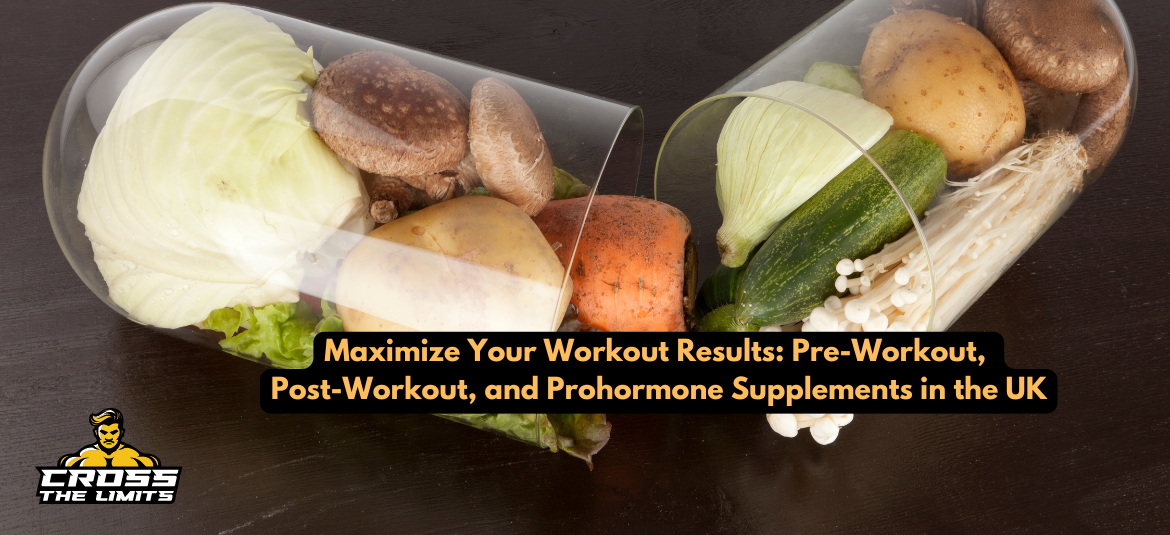
Maximize Your Workout Results: Pre-Workout, Post-Workout, and…
October 13th, 2024
Read moreWe use cookies to ensure that we give you the best experience on our website. If you continue to use this site we will assume that you are happy with it.
ACCEPTIMPORTANT – EU Shipping on Hold from 13.06 to 26.06Dear EU Customers, Please note that all orders placed after June 13th will be shipped from the UK on June 26th. This means that dispatch may be delayed by approximately 2 weeks. Orders are expected to arrive at our EU warehouse around July 3rd, after which they will be shipped as usual via DPD. We kindly ask for your patience and understanding.

